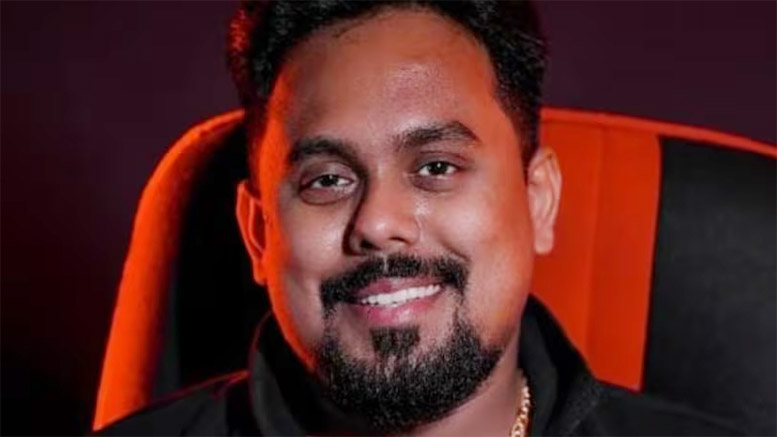Kabul, Sept 13: Around 50 million people globally were living in "modern slavery" in 2021, according to a report by the UN, which said that the Covid-19 pandemic has led to an increased risk of forced marriages in countries like India, Afghanistan, Bangladesh, and Egypt.
‘The Global Estimates Of Modern Slavery’, a report published by the International Labour Organization (ILO), International Organisation for Migration (IOM) and international human rights group Walk Free, said 50 million people were living in modern slavery in 2021.
Of these, 28 million were in forced labour and 22 million trapped in forced marriage.
“Forced marriages take place in every region in the world. Nearly two-thirds of all forced marriages, an estimated 14.2 million people, are in Asia and the Pacific. This is followed by 14.5 per cent in Africa (3.2 million) and 10.4 per cent in Europe and Central Asia (2.3 million),” the report released on Monday said.
It noted that when regional population is accounted for, the Arab States is the region with the highest prevalence at 4.8 per thousand people, followed by Asia and the Pacific at 3.3 per thousand.
The Americas has the lowest prevalence of forced marriage at 1.5 per thousand people.
“Covid-19 has led to increased risk of forced marriage in every region. The collection of official statistics, including civil registration systems, was interrupted during the pandemic due to mobility restrictions, safety and ethical considerations, delays in response services, or deprioritisation.
"Where data is available, increases in child and forced marriages have been reported in Afghanistan, Bangladesh, India, Indonesia, Sudan, Egypt, Yemen, Jordan, Senegal, Uganda, and Democratic Republic of the Congo,” it said.
The report added that the number of people in modern slavery has risen significantly in the last five years, with 10 million more people in modern slavery in 2021 compared to 2016, with women and children remaining disproportionately vulnerable.
“Modern slavery occurs in almost every country in the world, and cuts across ethnic, cultural and religious lines. More than half (52 per cent) of all forced labour and a quarter of all forced marriages can be found in upper-middle income or high-income countries,” it said.
“It is shocking that the situation of modern slavery is not improving. Nothing can justify the persistence of this fundamental abuse of human rights,” said ILO Director-General Guy Ryder.
“We know what needs to be done, and we know it can be done. Effective national policies and regulation are fundamental. But governments cannot do this alone. International standards provide a sound basis, and an all-hands-on-deck approach is needed. Trade unions, employers' organisations, civil society and ordinary people all have critical roles to play,” Ryder said.
At 86 per cent, most cases of forced labour are found in the private sector, the report said.
Forced labour in sectors other than commercial sexual exploitation accounts for 63 per cent of all forced labour, while forced commercial sexual exploitation represents 23 per cent of all forced labour, it said.
Almost four out of five of those in forced commercial sexual exploitation are women or girls, it said.
State-imposed forced labour accounts for 14 per cent of people in forced labour.
Almost one in eight of all those in forced labour are children (3.3 million).
More than half of these are in commercial sexual exploitation.
Migrant workers are more than three times more likely to be in forced labour than non-migrant adult workers.
While labour migration has a largely positive effect on individuals, households, communities and societies, this finding demonstrates how migrants are particularly vulnerable to forced labour and trafficking, whether because of irregular or poorly governed migration, or unfair and unethical recruitment practices.
An estimated 22 million people were living in forced marriage on any given day in 2021, a number indicating an increase of 6.6 million since the 2016 global estimates.
The true incidence of forced marriage, particularly involving children aged 16 and younger, is likely far greater than current estimates can capture; these are based on a narrow definition and do not include all child marriages.
Child marriages are considered to be forced because a child cannot legally give consent to marry, the report said.
It added that forced marriage is closely linked to long-established patriarchal attitudes and practices and is highly context specific.
The overwhelming majority of forced marriages (more than 85 per cent) was driven by family pressure.
Although two-thirds (65 per cent) of forced marriages are found in Asia and the Pacific, when regional population size is considered, the prevalence is highest in the Arab States, with 4.8 people out of every 1,000 in the region in forced marriage.
Antonio Vitorino, IOM Director-General, said the report underscores the urgency of ensuring that all migration is safe, orderly, and regular.
The report proposes a number of recommended actions which, taken together and swiftly, would mark significant progress towards ending modern slavery.
These include: improving and enforcing laws and labour inspections; ending state-imposed forced labour; stronger measures to combat forced labour and trafficking in business and supply chains; extending social protection, and strengthening legal protections, including raising the legal age of marriage to 18 without exception.
Other measures include addressing the increased risk of trafficking and forced labour for migrant workers, promoting fair and ethical recruitment, and greater support for women, girls and vulnerable individuals.








Comments
Add new comment